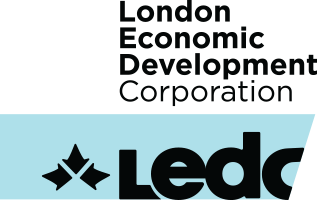LONDON, ONT. -- Peter Haight is a young man in a hurry. He started his day as a high-school student and ended it in a university classroom. No wonder he's yawning.
He's one of a growing number of young people taking university-level courses, while carrying a full high-school load, to get ahead in an increasingly competitive game.
"I probably wouldn't be doing it just because I want to do it. I had a plan in mind when I got into this," the 17-year-old said, sitting in an anthropology class at the University of Western Ontario in London, Ont..
He's found that juggling high-school classes and a university course is far from easy. Mr. Haight, a Grade 12 student at Sir Frederick Banting Secondary School in London, spends weekday nights doing high-school homework. Weekend afternoons and evenings are more often than not dedicated to his university reading and working on other school projects.
Across the country, students such as Mr. Haight are fighting to stay ahead of the game. Pressure from family and society in general that future success and benefits -- fancy cars, big houses and lots of money -- are possible only with a solid university education is driving high-school students onto campuses early.
What happened to enjoying time in high school? What happened to stopping and smelling the roses?
David Livingstone, head of the Centre for the Study of Education and Work at the Ontario Institute for Studies in Education, said that young people more than ever are trying to find an edge in the job market by developing an area of specialization earlier.
OISE's long-running Ontario citizens' poll on education finds that more and more people say a college diploma or university degree is necessary for success.
"The pressures clearly for young people today are mounting to get more education, more credentials so that they can be more competitive in the job market," Mr. Livingstone said.
Universities often invite high-school students to lectures on campus. Western has gone a step further by offering courses to high-school students with top marks -- a chance, they say, for them to experience university while still in their comfort zone of high school.
Donna Moore, an academic adviser at Western, said interest in the university's Initiative for Scholarly Excellence program, the tuition-free courses for high-school students, has increased over the past five years, so much so that the university has capped enrolment at 100 students on its main campus.
"If they're considering going on to university, this is good opportunity to test the waters," she said.
Mr. Haight has jumped right in.
He took a course in the media, information and technoculture program last semester. Every Tuesday night this term, while his friends are doing homework, watching television or playing videogames, Mr. Haight is in a three-hour anthropology lecture.
He sits quietly in the third row scribbling notes, looking confused at times, trying to follow what the professor is saying.
He yawns a few times. It has been a long day.
Tuesdays mean band practice before school (he plays the saxophone), followed by classes in English, sociology and music. He rushes home to do homework and have dinner before his 7 p.m. lecture. Mr. Haight has an average in the high 80s, good enough to get into most universities. He's not surprised that he got into the program at Western. However, he recalls being nervous in the first few weeks, surrounded by older students.
His manner changes from high school to university. He sits among the boys in his music class and jokes around with his classmates.
But at the university, he sits alone, occasionally speaking with the student beside him.
He has always been studious. His mother, Laurie Campbell, can attest to that. "I've never had to push him out the door to go to school," she said.
His father, Tom Haight, was the one who found out about the university program. Why enroll the teenager early? "He is a good student and I felt it would be a challenge for him," he said. "Part of me is subtly directing him to university.
"This is just my hunch, but I think Peter is going to be one of those kids that does better in university than high school because he likes the independence," his father said.
Like many other high-school students, Mr. Haight wants to keep ahead of the competition.
What benefit is there from starting early, especially when it's an added load during his final year of high school?
"I won't be in first year [of university] and not know what's going on," he said. "I'm doing it to get a couple of courses out of the way." This, he says, may help him finish university earlier or simply give him a head start in discovering what he wants to do before many of his peers.
Kathleen Kevany, director of the Centre for New Students at Western, said students are faced with intense competition to get into university. Many also have high expectations for themselves.
She recalled a show on girls, aged 7 and 8, making a decision to attend a school that teaches regular classes and ballet because they wanted to be ballet dancers when they grew up.
"They're eight years old and they know their future," Ms. Kevany said. "Young people know more. They know more than most of us knew at their age."
Source: Globe and Mail. February 24, 2004: "Early birds on campus are looking for an edge" By CAROLINE ALPHONSO, EDUCATION REPORTER


